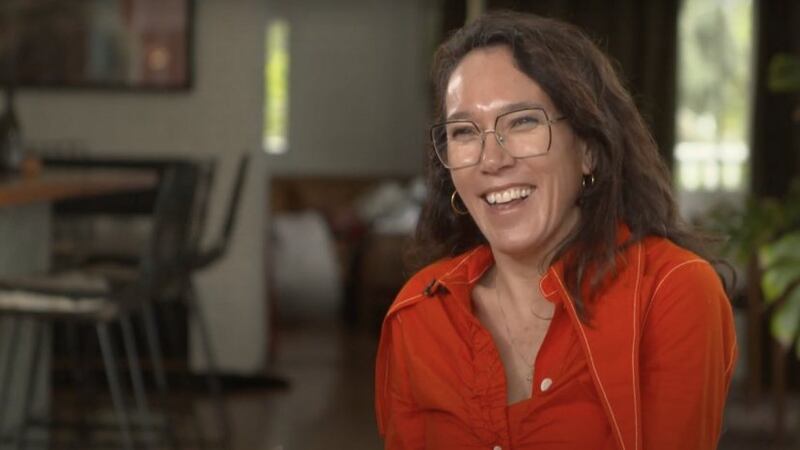He Puapua co-author Professor Claire Charters has been appointed Rongomau Taketake (Indigenous rights governance partner) at the Human Rights Commission (Te Kāhui Tika Tangata). Photo / Whakaata Māori
The chair of the committee that produced the contentious He Puapua report has been appointed to lead work on Indigenous issues, at the Human Rights Commission (Te Kāhui Tika Tangata).
Legal scholar and Auckland University law professor Claire Charters (Ngāti Whakaue, Ngāti Tūwharetoa, Ngā Puhi, Tainui) will provide ‘tangata whenua leadership’, with a ‘view to enhancing the commission’s governance’ the commission said in a statement.
“She will also advise and support existing projects and mahi to advance understanding of Te Tiriti o Waitangi and the United Nations Declaration on the Rights of Indigenous Peoples,” it said.
The Human Rights Commission provides advice and recommendations to the government and other public bodies on human rights issues, including legislation, policies, and practices that affect human rights.
The body is also responsible for investigating and resolving complaints of discrimination based on race, gender, age, religion, disability, sexual orientation, and other grounds.
“[Charters] brings internationally recognised expertise on indigenous peoples’ rights, which will greatly benefit the commission’s work,” Te Amokapua Chief Human Rights Commissioner Paul Hunt said.
'Constitutional transformation'
A co-author of He Puapua (A break), a report commissioned in 2019 by the government to inquire into measures to achieve the goals set out by the United Nations Declaration on the Rights of Indigenous Peoples (UNDRIP), Charters has also championed constitutional transformation to realise Māori rights within Te Tiriti o Waitangi and He Whakaputanga, in addition to the UNDRIP.
“I’m looking forward to putting into practice a lot of my hopes and ambitions for constitutional transformation and the realisation of indigenous peoples’ rights.” Charters said in a statement.
“Progressing those rights is about honouring our tūpuna and ensuring future generations can achieve the vision set down in Te Tiriti o Waitangi to enjoy equality alongside all New Zealanders,”
He Puapua proved controversial because political opponents such as National and ACT associated it with separatism, even though the United Nations declaration was signed by a National government in 2010, with previous governments declining to do so.
University of Auckland Law Academic, Professor Claire Charters discusses if Aotearoa could become a republic, and whether tauiwi should have a right to vote in a referendum on the issue. Video / Will Trafford / Whakaata Māori
The report discuses recommendations for advancing the rights and aspirations of Māori, including tino rangatiratanga around parliamentary process and local government, the justice system, and sovereignty of whenua.
Under new prime minister Chris Hipkins, the government has signalled it is pumping the brakes on the report’s recommendations, particularly as it relates to the implementation of the government’s Three Waters reforms.
The Commission partnered with the National Iwi Chairs Forum to bolster its Indigenous leadership, in the appointment of Professor Charters; a pōwhiri welcomed Charters into the role of Rongomau Taketake (Indigenous rights governance partner).
“The pōwhiri was beautiful. I felt very welcomed and it was lovely that the Law School kaiārahi and my Ngāti Whakaue kaumātua were there to hand me over to the Commission. It meant a lot.” Charters said.
The Forum partnership and the appointment of Charters, according to Meng Foon, Kaihautū Whakawhanaungatanga-ā-Iwi (Race Relations Commissioner) is another step towards the Commission respecting and implementing te Tiriti o Waitangi.
“Claire has extensive experience working on the United Nations Declaration on the Rights of Indigenous Peoples, and that will be a huge asset as we support the implementation of the declaration here in Aotearoa New Zealand,” says Foon.
National Iwi Chairs Forum Pou Tikanga Professor Margaret Mutu hopes that the Commission's joint initiative with the Forum will be one from which the entire public sector can learn.
“We relish this opportunity to work with Te Kāhui Tika Tangata to ensure that it is responsive and accountable to Tangata Whenua aspirations and needs,” Professor Mutu said.


